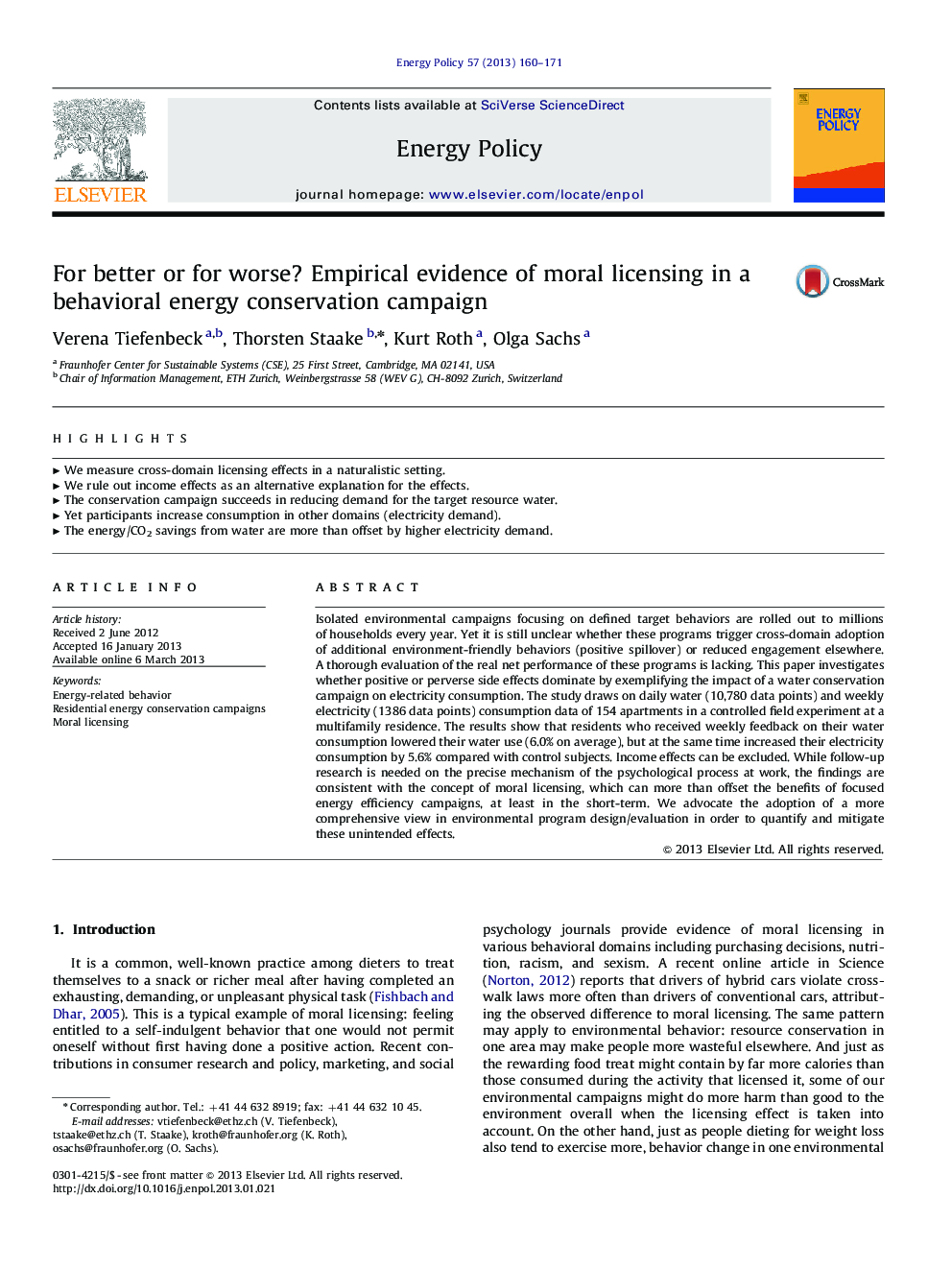| کد مقاله | کد نشریه | سال انتشار | مقاله انگلیسی | نسخه تمام متن |
|---|---|---|---|---|
| 992961 | 1481301 | 2013 | 12 صفحه PDF | دانلود رایگان |

Isolated environmental campaigns focusing on defined target behaviors are rolled out to millions of households every year. Yet it is still unclear whether these programs trigger cross-domain adoption of additional environment-friendly behaviors (positive spillover) or reduced engagement elsewhere. A thorough evaluation of the real net performance of these programs is lacking. This paper investigates whether positive or perverse side effects dominate by exemplifying the impact of a water conservation campaign on electricity consumption. The study draws on daily water (10,780 data points) and weekly electricity (1386 data points) consumption data of 154 apartments in a controlled field experiment at a multifamily residence. The results show that residents who received weekly feedback on their water consumption lowered their water use (6.0% on average), but at the same time increased their electricity consumption by 5.6% compared with control subjects. Income effects can be excluded. While follow-up research is needed on the precise mechanism of the psychological process at work, the findings are consistent with the concept of moral licensing, which can more than offset the benefits of focused energy efficiency campaigns, at least in the short-term. We advocate the adoption of a more comprehensive view in environmental program design/evaluation in order to quantify and mitigate these unintended effects.
► We measure cross-domain licensing effects in a naturalistic setting.
► We rule out income effects as an alternative explanation for the effects.
► The conservation campaign succeeds in reducing demand for the target resource water.
► Yet participants increase consumption in other domains (electricity demand).
► The energy/CO2 savings from water are more than offset by higher electricity demand.
Journal: Energy Policy - Volume 57, June 2013, Pages 160–171